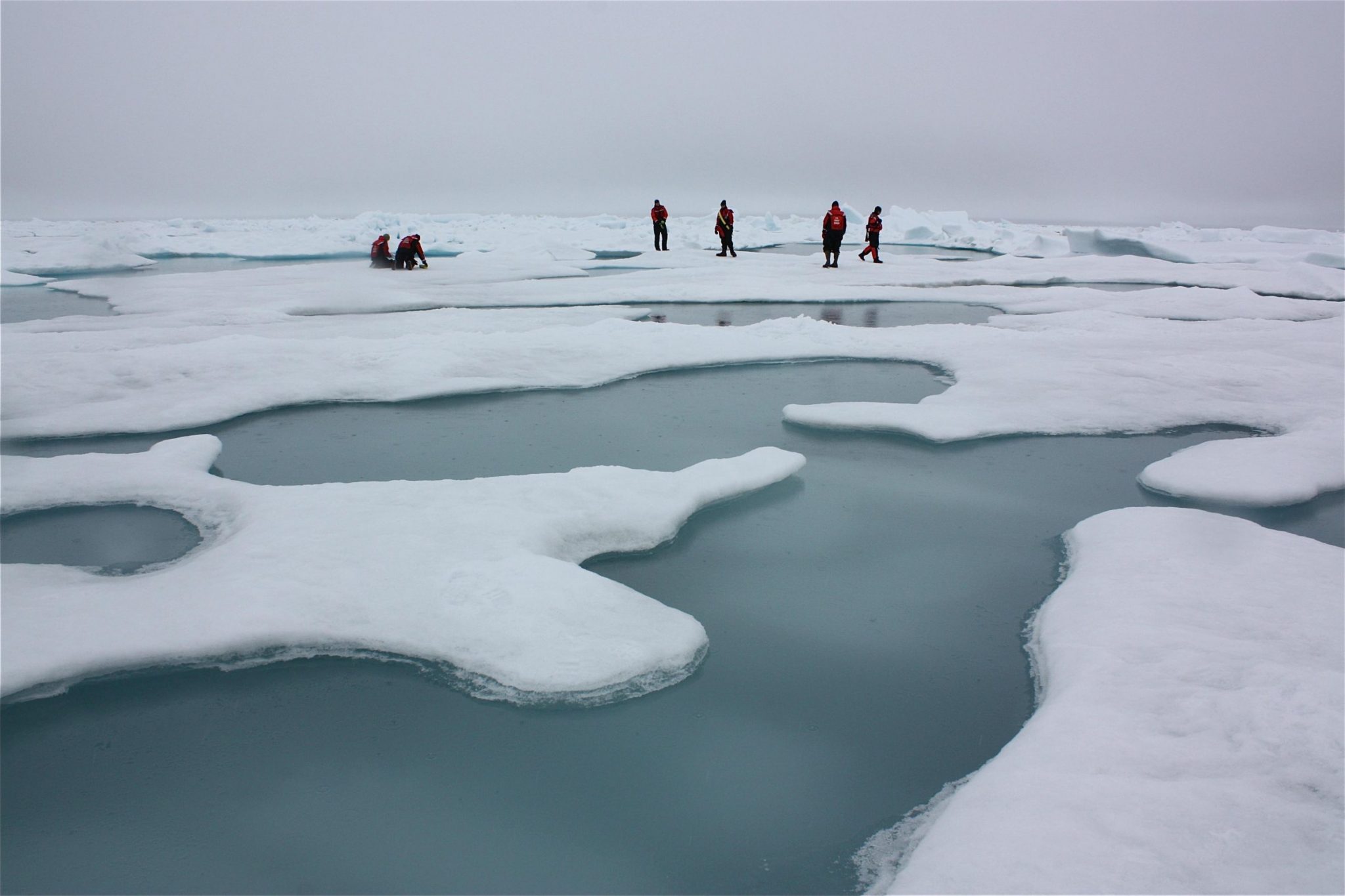Some Arctic research will continue in Canada, thanks to local partnerships
“It’s an unintended benefit of community-led research.”

For some researchers who work in the Arctic, the COVID-19 pandemic ended their upcoming field season before it began, but for others, it’s going ahead on some level thanks to local partnerships.
“It’s an unintended benefit of community-led research,” said Chris Debicki, the vice president of policy development and counsel at Oceans North.
“We never anticipated that there would be a time when southern researchers just couldn’t come up.”
In March, as a response to the pandemic, the Government of Nunavut implemented travel restrictions that limited entry to the territory to residents and essential workers.
While this has been an effective means of preventing the novel coronavirus from entering the territory, the impact on researchers was almost immediate.
[The COVID-19 pandemic has halted most US Arctic field research for 2020]
Later that month, the Polar Continental Shelf Program, or PCSP, a part of Natural Resources Canada that provides cost-effective logistics, co-ordination and advice to researchers conducting fieldwork in the North, suspended its logistics operations.
“Without the ability to travel to the territories and without PCSP’s ability to bring research teams to remote field camps and locations, the research field-season is currently on hold,” the PCSP said in a statement to Nunatsiaq News.
During the 2020 field research season, the PCSP planned to support 160 projects across the Arctic, with approximately 1000 participants involved in those research projects.
For other research groups, such as that associated with the CCGS Amundsen, Canada’s preeminent research icebreaker, the season will continue but it will be shorter and feature some considerable changes.
But not all scientific groups working in the North have the ability to sequester themselves on a research vessel.
While Oceans North does conduct fisheries and oceanographic research while at sea, they also work on traditional knowledge projects with communities, including an archeological dig.
“For us, just like any organization doing research in the Arctic, we’re looking at the prospect of a lot of cancellations and things that can’t go ahead this summer,” said Debicki.
With the season on hold, Debicki says that the Oceans North team that would have been busy preparing to go into the field has instead been working on developing new educational materials to share with school-aged students and looking at ways they can support food security and mental health initiatives in the communities.
In the past, southern researchers haven’t always collaborated and partnered with Inuit communities. Now organizations like Oceans North are beginning to change that by developing community-led initiatives.
“Inuit bring a sophisticated ecological knowledge to marine conservation that is essential to building a healthy future,” says the Oceans North website.
Thanks to those local partnerships, there are technicians who live in some communities that have the equipment and expertise to continue research projects amid the pandemic.
Among those projects are a floe edge camera network and acoustic monitoring stations in Pond Inlet and a beluga study in the Churchill River Estuary.
Some of Oceans North’s traditional knowledge gathering initiatives will continue, such as one in Inukjuak.
“That’s going to proceed because we’re directly supporting local participants,” said Debicki.
“It’s a place where our philosophy of community partnerships and supporting community-led initiatives is really paying off.”
Debicki also understands that there may be university students who have a science or research background that have taken shelter in their home communities as a result of the pandemic.
“So we’re also reaching out to see if this isn’t an opportunity to collaborate with Nunavummiut and take advantage of the fact that they’re home right now,” said Debicki.
If you are a university student in your home community over the summer and are interested in collaborating with Oceans North, you can reach out to Debicki by email.
Oceans North isn’t alone in its ability to continue summer research.
Ikaarvik, a youth-driven initiative by Ocean Wise that aims to connect southern researchers with the needs of northern communities, has seen some of its plans change but hopes that others will go ahead.
“All the different things that we do are impacted by COVID the same way most other things are,” said Eric Solomon, director of Arctic programs for Ocean Wise and co-lead of Ikaarvik.
This means that the youth involved in the initiative aren’t able to travel and get together with each other or with mentors to develop projects and plans for the next field season.
“For us, in a very practical sense, what that means is some of the projects that were going to get started this summer … that’s, of course, on hold for now,” said Solomon.
“Other projects, because the youth are driving this stuff, for example in Kugluktuk, as long as they are able to, to go out on the river in groups of two to four by summer, they’ll be able to carry on.”
As of June 1, the Government of Nunavut began easing its pandemic precautions, including allowing outdoor gatherings of up to 25 people, paving the way for the youth in Kugluktuk to be able to continue their fieldwork.
While this is good news, Solomon wonders what impact a mostly cancelled season will have on the relationships between southern researchers and northern communities.
“It’s so important when someone like me, or someone from my organization or a researcher from the south, starts working with communities that they’re able to not just pop in and pop out, but come back and spend real, meaningful time and continue to come back and maintain the relationships and the trust and the respect,” said Solomon, who estimates that it may be almost an entire year between his last trip and his next one.
“We all keep in touch by phone or email or whatever, but there’s just no substitute for the face to face.”